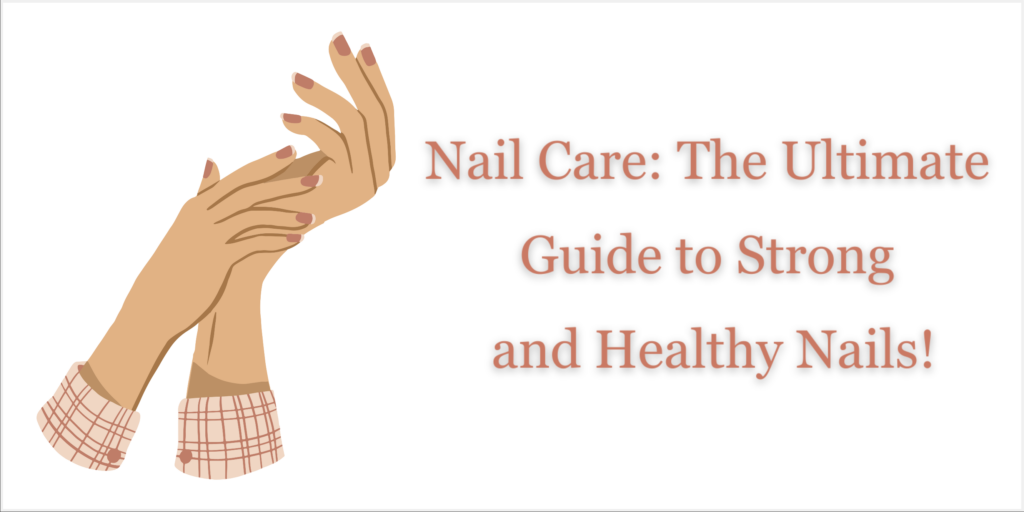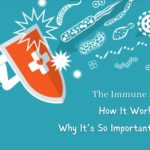Important nail care tips
Important nail care tips are crucial to maintaining strong and healthy nails. Your nails not only serve a functional purpose but are also a reflection of your overall health and hygiene. Several factors, including nutritional deficiencies, exposure to harsh chemicals, and underlying health conditions, can cause weak and brittle nails.
Neglecting your nails can lead to common problems like fungal infections, peeling, and splitting. To prevent these issues and maintain strong and healthy nails, following a regular nail care routine is essential. In this article, we’ll explore important nail care tips that you can incorporate into your daily routine to keep your nails looking and feeling their best.
Tips for Strong and Healthy Nails
Nail care is essential to maintain strong and healthy nails. Apart from enhancing your appearance, healthy nails indicate overall health. Let’s take a look at some important nail care tips to keep your nails in good condition.
- A healthy diet is crucial for strong nails. Consuming foods rich in biotin, protein, and vitamins A and E, such as leafy greens, eggs, and nuts, can enhance nail health. Additionally, drinking adequate water keeps nails hydrated.
- Maintaining nail hygiene is critical. Keeping nails clean and trimmed prevents harmful bacterial growth. Please refrain from using harsh chemicals on nails, as they can damage and dry them.
- Moisturizing and protecting nails can help retain their strength and flexibility. Using a nail moisturizer and wearing gloves while cleaning or using harsh chemicals protects nails from damage.
- Avoid habits that damage nails, such as biting nails, picking at cuticles, or using nails as tools. Such habits weaken nails, making them vulnerable to infections and breakage.
Common Nail Problems and Solutions
Proper nail care is essential to maintain healthy and beautiful nails. Neglecting nail care can lead to various issues, such as nail fungus, infections, discoloration, splitting, peeling, ridges, and uneven texture. Some important nail care tips can help prevent and treat these problems.
- Nail Fungus and Infections: Keep your nails clean and dry to prevent nail fungus and infections. Avoid using harsh chemicals or sharing nail tools. Seek medical attention if you notice any signs of infection, such as redness, swelling, or discharge.
- Nail Discoloration and Yellowing: Discoloration and yellowing of nails can be caused by a fungal infection, smoking, or using dark nail polish. To prevent this, keep your nails clean, avoid smoking, and use a base coat before applying nail polish.
- Splitting and Peeling Nails: Splitting and peeling nails can be caused by dryness, overexposure to water, or vitamin deficiencies. To prevent this, moisturize your nails and cuticles regularly, wear gloves while doing water-related chores, and eat a balanced diet rich in vitamins and minerals.
- Ridges and Uneven Nail Texture: Ridges and uneven nail texture can be caused by aging, nutritional deficiencies, or trauma. Use a nail buffer to smooth the ridges and apply a strengthening nail polish to prevent this.
Manicures and Pedicures: Dos and Don’ts
Maintaining your nails is essential to look and feel your best. Whether you prefer DIY nail care or professional services, here are some important nail care tips that can help you achieve a perfect manicure and pedicure.
- Professional vs. DIY Nail Care: DIY nail care refers to taking care of your nails at home using do-it-yourself techniques without the assistance of a professional nail technician. While professional nail care can be expensive, it offers high-quality services and the latest trends in nail art. However, DIY nail care is cost-effective and convenient, allowing you to care for your nails at home.
- Choosing the Right Nail Products: Using the right nail products is crucial to prevent damage and achieve healthy nails. Choose products that are free from harmful chemicals such as formaldehyde, toluene, and phthalates.
- Safe Nail Polish Removal Techniques: Avoid using harsh chemicals or picking at your nails to remove nail polish. Instead, use acetone-free nail polish remover and a soft nail buffer to remove the polish gently.
- How Often Should You Get a Manicure or Pedicure?: The frequency of getting a manicure or pedicure depends on your nail health and personal preference. However, getting a professional manicure or pedicure is recommended once a month to maintain healthy nails.
Nail Care for Specific Conditions
Nail care is essential for maintaining healthy, strong, and attractive nails. Different groups of people have different nail care needs. Here are some important nail care tips for aging nails, pregnant women, athletes, and active individuals.
- Nail Care for Aging Nails: Moisturize nails regularly with nail oils or creams to keep them healthy. Avoid using harsh chemicals on nails and cuticles, and keep them trimmed and filed regularly.
- Nail Care for Pregnant Women: Avoid exposing nails to harmful chemicals and toxins during pregnancy. Wear gloves while cleaning and avoid using nail polish that contains harmful chemicals. Keep nails trimmed and moisturized to prevent breakage.
- Nail Care for Athletes and Active Individuals: Wear proper footwear to prevent toenail injuries. Keep nails trimmed and clean to prevent fungal infections. Moisturize nails and cuticles regularly to prevent dryness and cracking.
Conclusion
Proper nail care is crucial for overall health and hygiene. It’s important for everyone, including aging individuals, pregnant women, and athletes, to follow important nail care tips. These include moisturizing nails regularly with oils or creams, avoiding harsh chemicals, keeping nails trimmed and filed, and wearing proper footwear and gloves.
Neglecting nail care can lead to various problems, such as fungal infections and brittle nails. Regular care ensures that nails remain healthy and beautiful, indicating good health. In conclusion, healthy nails start with proper nail care. Follow these essential tips to maintain strong and healthy nails, an important part of overall health and hygiene.



